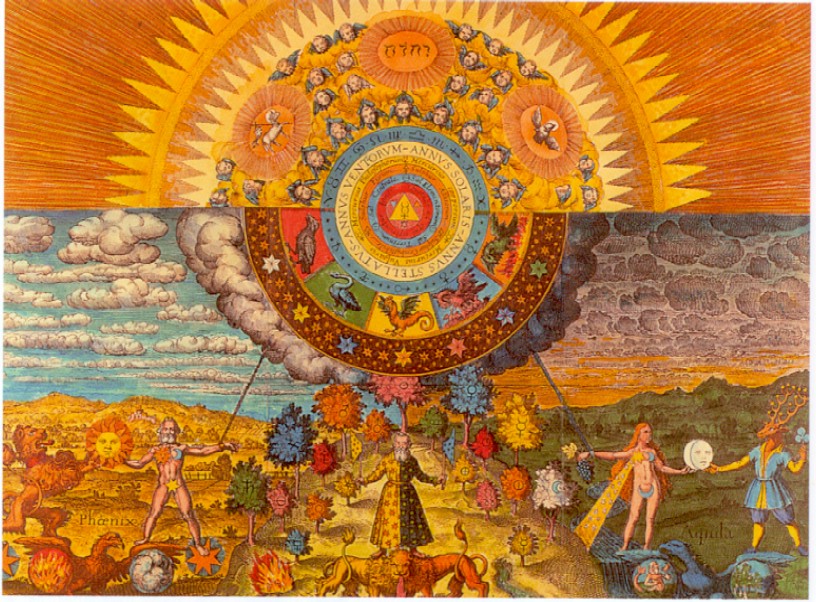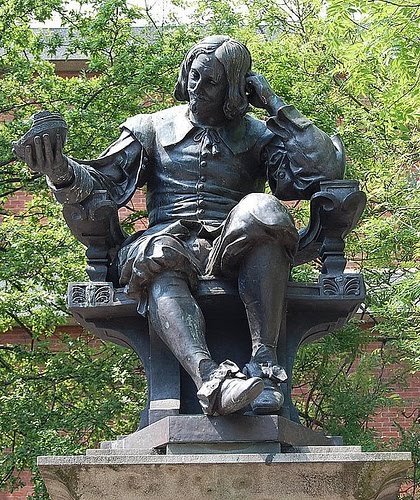Earlier this
year I was introduced, courtesy of a friend, to the music of Osvaldo Golijov (b. 1960). The music of Golijov, who was born and grew up in Argentinia of East European and Judaic
descent, draws upon a wide spectrum including experimental
and electronic, Jazz and Pop, Klezmer music, the Tango and the folk traditions of World music. In addition to these varied musical influences Golijov has been well-qualified to absorbing world-wide music languages in his career. He moved from Argentina to Israel in 1983 to study music at the Rubin Academy at Jerusalem. In 1986 he relocated to America where he has taught music at the College of the Holy Cross, Worcester, Massachusetts since 1991.
The music-making of the Latin-American world, the city of Jerusalem and medieval Spain are of special inspirational value to Golijov. Each of these locations were once seminal places at the crossroads of overlapping cultures, where Christian, Muslim and Jew once peacefully co-existed.
I was probably
in a highly-charged emotional state last winter anyway when first hearing the
electrifying incantation by singer Dawn Upshaw which opens Ayre (2004). Golijov's song-cycle was influenced by a
creative urge to create a companion work
to Luciano Berio’s Folk Songs (1964) which draws upon traditional melodies from
America , Armenia ,
Sicily , Genoa ,
Sardinia, the Auvergne and Azerbaijan .
Golijov’s song cycle is no less eclectic and diverse than Berio's. It features the music of southern Spain and the
intermingling of Christian, Arab and Jewish cultures with texts from the Sephardic, Arabic, Hebrew and Sardinian
languages.
The influence of Berio’s
folk-song cycle is most evident in the gentle and traditional Sephardic song
which follows the incandescent opening. The next song Tancas serradas a muru in stark contrast is defiant and aggressive, near punk and urban rap-like in style, comes as a complete shock to those who imagine the performing persona of classically-trained singer Dawn Upshaw to be confined to the demure. Her reciting of Be a string, water, to my
guitar a calm, reflective, unaccompanied poem is insightful, while the song Yah , annah emtza’cha, aurally and vividly depicts the era of medieval Spain in which
Muslim, Jewish and Christian cultures once lived harmoniously. Golijov explains why Medieval Spain and the era of peaceful inter-relationship of religious faiths is close to his heart when commenting upon his song-cycle-
'With a little
bend, a melody goes from Jewish to Arab to Christian. How connected these
cultures are and how terrible it is when they don’t understand each. The grief
that we are living in the world today has already happened for centuries but
somehow harmony was possible between
these civilizations’
The song-cycle Ayre is one of several Golijov
compositions written specifically with the qualities and
interpretative insight of the mezzo-soprano Dawn Upshaw and her gorgeous singing voice in
mind. The subject of the strengths and weaknesses of composers writing with specific voices in
mind may well re-surface in musical discussion next year when the centenary of the
British composer Benjamin Britten (b.Lowestoft 1913) occurs. Britten wrote many song-cycles and opera parts specifically with the voice of his longtime partner the tenor Peter Pear in mind. Whether or not vocal works written for one specific voice in performance
and interpretation can be completely replicated by another, remains an open question.
Dawn Upshaw’s
recording of the song-cycle Ayre
concludes evoking Greek mythology with the tale of Ariadne in the labyrinth, a tense, mysterious and coiling musical theme
which highlights the instrumental
playing of the chamber ensemble, the Andalucian Dogs, as it slowly
fades into silence. Golijov’s final song in the cycle perfectly highlights the cross-fertilization of musical cultures within the Mediterranean
basin far better than words ever can. Golijov himself spoke of the creative
motivation of composing his song-cycle-
The idea is to
create a forest and for Dawn to walk in it. There is no real sense of ‘form’ –in
the sense of Beethovian development – but rather lots of detours and
discoveries’.
The title alone
of the opera Ainadamar (Arabic: Fountain
of Tears) appealed to me as the next work by Golijov work worth hearing. The opera’s title alludes to an
ancient well near Granada in Spain where the
poet Federico Garcia Lorca was murdered by Spanish Fascists in August 1936. First performed at the Tanglewood Festival in August 2003 Ainadamar is primarily based upon traditional Spanish music, in particular the Flamenco style. Once more the hypnotic voice of Dawn Upshaw is featured, this
time performing as Margarita Xirgu, a Catalan tragedian and Lorca's lover and muse, who collaborated with him on several of his plays. Without wanting to post spoilers there's a very startling moment in Golijov's opera about Garcia Lorca’s murder. In recent times the terror and trauma of
the Spanish civil war is the backdrop for film-director Guillermo del Toro’s Pan’s Labyrinth (2006) a harrowing account of an episode in
the Spanish civil war interlinked with a fantasy world of magical
realism.
La Pasion segun san Marcoc, The Passion of Saint Mark (first performed in Stuttgart 2000) is perhaps the most original musical work by Golijov. Commissioned on the occasion of the 250th anniversary year of the death of the famous western composer of choral Passion music, J.S.Bach. Golijov's Passion scored for large ensemble, chorus and soloists, is a Latin-American interpretation of the Gospel of Mark, a spiritual text the composer was previously unfamiliar with. Using predominantly exotic percussion and voice, the music throughout is coloured with a Latin-American flavour, its rhythms are created as much by drums as by text. The oratorio includes text in Aramaic, the language Jesus spoke, an extract from the Lamentations of Jeremiah and concludes with a Judaic Kaddish. Golijov said of the Latin American coloration of his oratorio -
'There is a strong tradition that news or stories in Cuba and Brazil , the Latin geographical centres of my Passion. This tradition comes from Africa , you know, and that’s how this Passion is being told. The voices represent the people who don't understand, who are in fear – and Jesus himself who understands but also fears – and then doesn’t fear. I thought most of the time the voice of Jesus would be the choir, because for me Jesus represents the voice of the people, transformed into a collective spirit...Unlike a Protestant Passion which is about meditating and commenting, this Passion is about enactment and ritual. It is a synthesis of Latin American traditions'.
Golijov defined the creative essence of his Gospel Passion thus - ‘the main thing in this Passion is to present a dark Jesus, and not a pale European Jesus… It’s about Jesus’ last days on earth seen through the Latin American experience’.
Golijov is not
shy of musical experimentation or of using sound-effect recordings to accompany his music. Such musical experimentation is prominent in his evoking a historical past for the soundtrack of the film Youth without Youth (2007). Based upon a novella by the Hungarian scholar of comparative religion, Mircea
Eliade, music plays an integral part in Frances Coppola's film, including scratchy 78 r.p.m. shellac recordings of love-songs and the Hungarian stringed percussion instrument the cimbalom with its charcacteristic folk-music. Golijov's musical imagination is given full rein to re-creating what in essence is the dominant theme of Coppola’s philosophical fantasy, an
exploration of the mysterious relationship
between time and memory, music and identity. Golijov spoke of his participation in the making of Youth without Youth thus-
‘Collaborating
with Francis Coppola was an amazing dream. I never lost my sense of wonder,
working with a great hero of mine, of my late father and of my friends in Argentina. On each occasion I spent time with him, I felt it was possible to
fulfill every dream in life’.
The soundtrack to Youth without Youth a love-story set over a vast stretch of time is a meditation upon time and consciousness which evokes a melancholy liebesschmerz. Its probably the
most orthodox, commercial and accessible of Golijov’s varied musical oeuvre. Listening to its sentimental strains of a Europe long-gone was a perfect restorative cathartic for me last spring.
In Golijov's The Dreams and Prayers of Isaac the Blind scored for clarinet and string quartet, the world of Jewish traditional music is featured. Based upon the writings of Rabbi Yitzhak Saggi Nehor (c.1160-1235) better known as Isaac the Blind, a writer on the Jewish esoteric lore of the Kabbalah, Golijov's chamber work has a virtuoso role which showcases the full emotional and expressive range of the clarinet. There's some sly Yiddish humour in the chamber work along with tragic lamentations and exuberance.
But perhaps the best single disc introduction to Osvaldo Golijov's extraordinary musical imagination and composing skills is Oceana for chorus and orchestra. The recording is augmented with a piece for string quartet entitled Tenebrae performed by the Kronos quartet and with three songs for soprano and orchestra. Golijov's three songs are sung with the usual insight and sensitivity by Dawn Upshaw and are strongly in the western classical tradition. To my ears the mysterious sound-world of these three songs bear a stylistic affinity to the songwriting skills of the late romantic Austrian composer Alexander Zemlinsky (1871-1942). The disc Oceana thus offers the new listener music composed in three differing formats by Golijov, large chorus and orchestra, string quartet and soprano and orchestra.
But perhaps the best single disc introduction to Osvaldo Golijov's extraordinary musical imagination and composing skills is Oceana for chorus and orchestra. The recording is augmented with a piece for string quartet entitled Tenebrae performed by the Kronos quartet and with three songs for soprano and orchestra. Golijov's three songs are sung with the usual insight and sensitivity by Dawn Upshaw and are strongly in the western classical tradition. To my ears the mysterious sound-world of these three songs bear a stylistic affinity to the songwriting skills of the late romantic Austrian composer Alexander Zemlinsky (1871-1942). The disc Oceana thus offers the new listener music composed in three differing formats by Golijov, large chorus and orchestra, string quartet and soprano and orchestra.
Golijov’s music
is a rich synthesis of classical, traditional and modern music, it’s world
music which can be shared and appreciated by a wide cross-section of the
globe’s ever-increasing inhabitants, especially those who are willing to
listen respectfully to the music of other cultures, the first step in the long walk towards achieving world peace and harmony.
Discography - Ayre with Berio Folk songs. Dawn Upshaw
& The Andalucian Dogs. DGG (2005)
Ainadamar – Fountain of Tears, an opera in 3 acts.
Dawn Upshaw. Atlanta Symphony Orchestra and chorus directed by Robert Spano DGG (2006)
Youth Without Youth Original
motion picture soundtrack DGG (2007)
Oceana;Tenbrae;3 songs for soprano and orchestra DGG (2007)
The Dreams and Prayers of Isaac the Blind Kronos quartet with David Krakauer DGG (1997)
Oceana;Tenbrae;3 songs for soprano and orchestra DGG (2007)
The Dreams and Prayers of Isaac the Blind Kronos quartet with David Krakauer DGG (1997)
La Pasion seguin san Marcos 2 discs including video performance DGG (2010)
Wiki-Link - Osvaldo Golijov


































2 comments:
Sohbet farklı vede güzel bir blog
Post a Comment